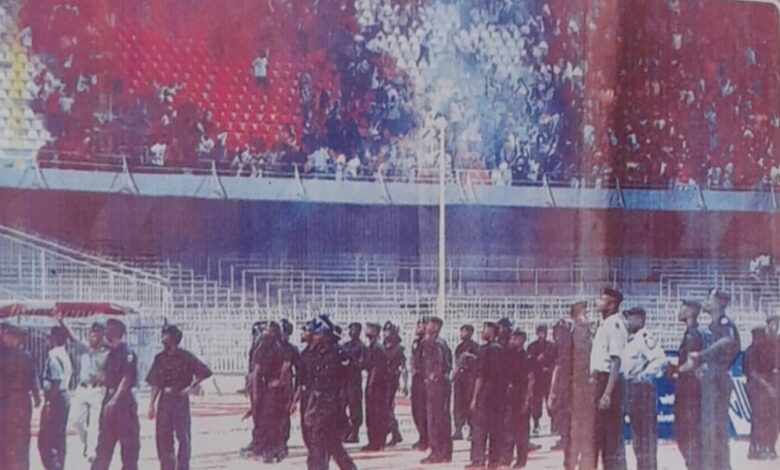May 9th disaster remembered 24 years later

On May 9, 2001, Ghana’s football community was shaken to its core, and the nation was left grappling with a tragedy that would forever change the landscape of African football. What should have been an exciting football match turned into one of the deadliest days in Ghana’s sporting history, with 126 lives lost in the May 9th disaster at the Accra Sports Stadium.
The fateful day began as a regular football match between two of the country’s most cherished teams—Accra Hearts of Oak and Kumasi Asante Kotoko. The match, part of the Ghanaian Premier League, had a charged atmosphere, as these fierce rivals faced off in front of tens of thousands of passionate supporters. However, by the end of the game, it would not be remembered for the football played on the pitch, but for the carnage that unfolded in the stands.
As the match drew to a close, Hearts of Oak secured a 2-1 victory, but the celebrations were short-lived. Kotoko fans, feeling the sting of the loss, surged toward the exit gates of the stadium, resulting in a catastrophic stampede. Panic ensued when a large section of the crowd was trapped between locked gates and a fence, unable to escape the crush of bodies. Those who could not move quickly enough were trampled, suffocated, or crushed to death.
The aftermath was horrifying. Emergency services arrived too late to save many of the victims. Bodies lay on the pitch and across the stadium as the full scale of the disaster became apparent. The event sent shockwaves across the nation and beyond, leaving a scar on the national consciousness that would endure for years to come.
The investigation that followed uncovered several contributing factors to the tragedy: poor crowd control, inadequate emergency planning, and a lack of proper communication and coordination among stadium authorities. It was revealed that the stadium’s exit gates were locked, which trapped thousands of fans inside the venue, worsening the chaos.
In the years that followed, Ghana’s football community mourned the loss of the 126 lives, many of whom were young, passionate football fans. The impact of the disaster was felt far beyond the stadium, as it led to sweeping changes in stadium management and safety protocols for football matches throughout the country and the continent.
The Ghana Football Association (GFA) and the government were forced to reconsider how football matches were organized, with increased emphasis on safety measures, crowd management, and the establishment of better emergency response protocols. The May 9th disaster also sparked the creation of a memorial at the Accra Sports Stadium, which continues to serve as a reminder of the lives lost that day.
Twenty-four years later, the memory of the May 9th disaster still lingers in the hearts of Ghanaians. Every year, the nation pauses to remember the victims, offering prayers for those who perished and support for the families who lost loved ones. Despite the passage of time, the tragedy remains a cautionary tale of what happens when safety measures are neglected and the passion of sport leads to tragic consequences.
For many, the disaster is a painful reminder of the fragility of life and the importance of responsible stadium management. The event has also spurred deeper conversations about the need for stronger regulation and oversight in sporting events across Africa.
Today, as the nation reflects on the tragedy, there is a sense of quiet respect for the lives lost on that fateful day. And while football has continued to thrive in Ghana, with Accra Hearts of Oak and Asante Kotoko continuing their fierce rivalry, the shadow of May 9, 2001, continues to shape the way the game is played and celebrated in the country.



